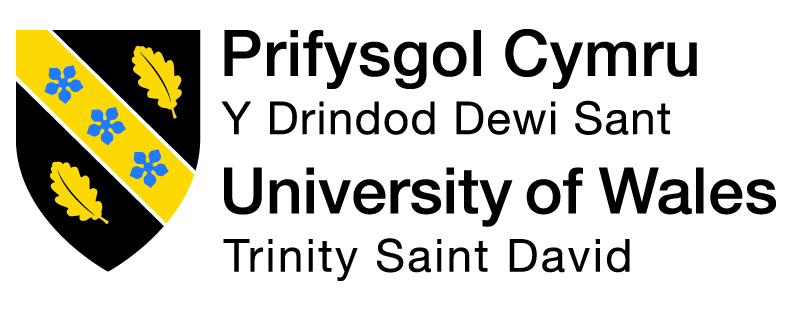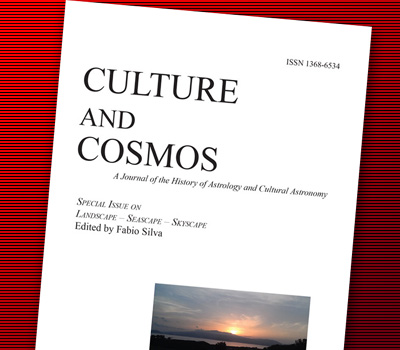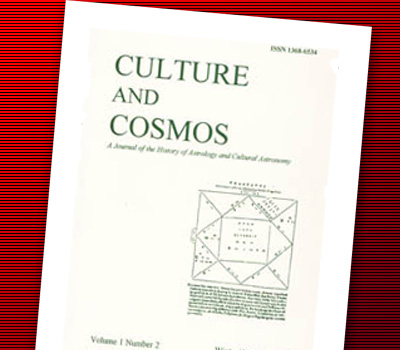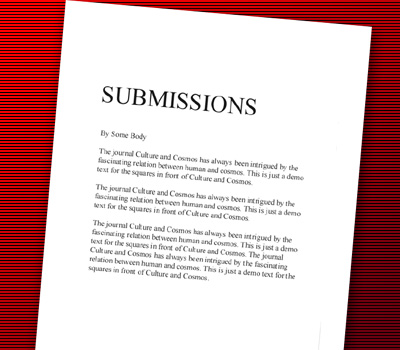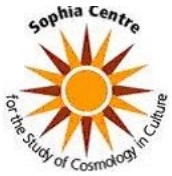We are currently seeking submissions for future volumes of Culture and Cosmos.
Volume 16
The Representation of Astrology in Golden Age Spanish Theatre: Different Points of View in Calderon’s "El astrologo fingido" *
Tayra Lanuza-Navarro
Abstract
This paper examines the representation of astronomical phenomena, and their astrological interpretation, in the Spanish theatre of the sixteenth century. The idea is not to use the plays as direct sources of information on the practice of astrology and also medicine, as has been previously done by Chevalier, Soufas and Sanchez Granjel.** Instead, I will look at the representation of astrology and its practitioners in theatre plays, considered as a cultural creation of their contemporary society. The first part of this study is focused on the representation of the variety of astrological practitioners, and how they dramatize the contact between academic astrology (taught at the universities) and other non-scholarly astrological practices, usually associated with magic and popular predictions. I also look at the interest of the general public in conventional representations of astrological theories.
* This paper is a result of the research included in the project ‘Cultura médica en el Siglo de Oro hispánico: análisis a través de fuentes no médicas’ funded by the Ministerio de Ciencia e Innovación of Spain (Project: HAR2009-11030-C02) and has been made possible due the Sidney M. Edelstein Fellowship awarded by the Chemical Heritage Foundation.
** Maxime Chevalier, ‘Le médecin dans la littérature du Siècle d’Or’ in Casa de Velázquez, Le Personnage dans la littérature du Siècle d'or: statut et fonction, (Paris: Editions Recherche sur les civilisations, 1984), pp. 21-37; Teresa Scott Soufas, Melancholy and the Secular Mind in Spanish Golden Age Literature (Columbia, MO: University of Missouri Press, 1990); Luis Sánchez Granjel, Historia general de la medicina española: La Medicina española del siglo XVII, Volumen 3. (Salamanca: Universidad de Salamanca, 1978).

